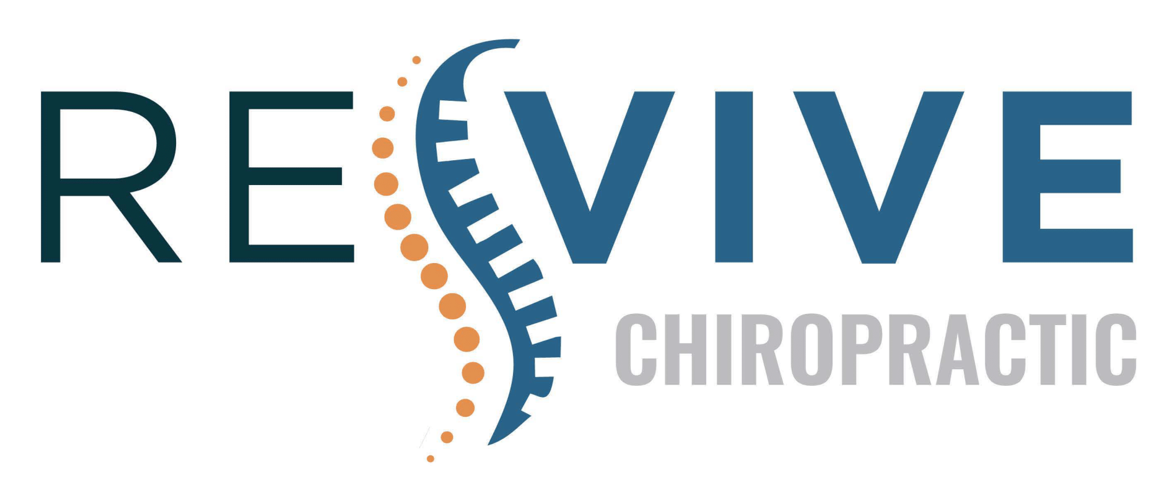You might be surprised to learn that some of the simplest methods can have a profound impact on reducing stress. Incorporating practices like deep breathing, meditation, or even a stroll in nature can shift your perspective and enhance your overall well-being. Herbal remedies and sound therapy are also gaining recognition for their soothing properties. But what if you could combine these techniques into a cohesive approach? Discovering how these strategies work together could be the key to revealing a more relaxed and mindful lifestyle.
Deep Breathing Techniques
Deep breathing techniques can be a powerful tool in your stress-reduction arsenal. When you feel overwhelmed, taking a few moments to focus on your breath can make a significant difference.
Start by finding a comfortable position, whether you're sitting or lying down. Close your eyes and take a deep breath in through your nose, letting your abdomen expand fully. Hold that breath for a moment before slowly exhaling through your mouth.
This simple practice calms your mind and helps lower your heart rate. Try to make your exhales longer than your inhales; for instance, inhale for a count of four, then exhale for a count of six. As you breathe, concentrate on the air flowing in and out, letting go of any distracting thoughts. You might even visualize stress leaving your body with each exhale.
Another effective method is the 4-7-8 technique. Inhale for four counts, hold your breath for seven counts, and then exhale for eight counts. This rhythm can help regulate your nervous system and promote relaxation.
You can practice deep breathing anytime and anywhere—at your desk, during a walk, or even in the car. Just a few minutes of focused breathing can ground you and bring clarity to your thoughts.
Make it a part of your daily routine, and you'll find that it becomes easier over time, allowing you to face stressors with a calmer mindset.
Meditation Practices
Meditation practices offer a transformative way to cultivate inner peace and reduce stress. By dedicating just a few minutes each day, you can tap into a powerful tool that helps you center your thoughts and connect with your inner self.
Whether you're a beginner or experienced, there's a meditation style that suits your needs.
Start with mindfulness meditation, where you focus on your breath and observe your thoughts without judgment. Find a quiet spot, sit comfortably, and take deep breaths. As thoughts arise, gently guide your focus back to your breath. This practice enhances your awareness and helps you stay present, reducing anxiety.
If you're looking for something more structured, try guided meditation. With various apps and online resources available, you can listen to soothing voices that lead you through relaxation techniques, visualizations, or even body scans. These sessions can help you unwind and make meditation feel less intimidating.
Transcendental meditation is another popular method, involving the repetition of a mantra. This practice allows your mind to settle into a state of deep rest while keeping your focus on the mantra, promoting relaxation and clarity.
Lastly, consider loving-kindness meditation. By directing positive thoughts toward yourself and others, you cultivate compassion and reduce feelings of stress and negativity.
Incorporating these meditation practices into your daily routine can greatly enhance your overall well-being. As you explore different techniques, you'll find what resonates best with you, making relaxation a more accessible part of your life.
Aromatherapy Benefits
Aromatherapy can be a powerful tool in your stress-reduction toolkit.
By using essential oils, you can create calming atmospheres or invigorating spaces depending on your needs.
Let's explore the various essential oils and the best methods to apply them effectively.
Essential Oils Overview
Harnessing the power of essential oils can transform your relaxation routine and greatly reduce stress levels. These concentrated plant extracts offer a variety of benefits that cater to both your mental and physical well-being. When you inhale the aromatic compounds, they can trigger your brain's limbic system, which regulates emotions, leading to improved mood and relaxation.
Different essential oils have unique properties; for instance, lavender is renowned for its calming effects, while peppermint can invigorate your senses. You might find that citrus oils, like orange or lemon, uplift your spirits and energize your day. Incorporating these scents into your environment can create a serene atmosphere, making it easier to unwind.
Essential oils also possess therapeutic benefits. They can help alleviate tension headaches, reduce anxiety, and promote better sleep. Using them in your daily routine can serve as a gentle reminder to carve out time for self-care amidst life's chaos.
Methods of Application
The art of applying essential oils can elevate your relaxation experience and maximize the benefits of aromatherapy. One effective method is diffusion. By using a diffuser, you disperse essential oils into the air, allowing their calming scents to envelop your space. Just add a few drops of your chosen oil, like lavender or chamomile, to the water, and let it work its magic.
Another method is topical application. You can mix essential oils with a carrier oil, such as coconut or jojoba oil, and gently massage it onto your skin. This method allows the oils to absorb directly into your body, providing immediate relaxation. Always do a patch test first to avoid skin irritation.
Inhalation is also powerful. Simply add a drop or two of essential oil to a cotton ball and inhale deeply, or place a few drops in your palms, rub them together, and breathe in.
Lastly, consider adding essential oils to your bath. Just a few drops can create a serene atmosphere, enhancing your overall relaxation.
Using these methods regularly can help you reclaim your calm and reduce stress effectively.
Nature Walks
Stepping into nature for a walk can do wonders for your stress levels. The fresh air, the sights, and the sounds of the natural world all combine to create an environment that calms your mind and rejuvenates your spirit.
When you immerse yourself in nature, you give yourself a break from the hustle and bustle of daily life, allowing for a much-needed reset.
Here are a few key benefits of taking nature walks:
- Reduces Anxiety: Being surrounded by greenery and natural beauty has been shown to lower anxiety levels, helping you feel more at peace.
- Boosts Mood: Exposure to sunlight and fresh air can elevate your mood, thanks to the endorphins released during physical activity.
- Enhances Focus: Nature walks can improve your concentration and cognitive function, making it easier to tackle tasks when you return.
- Encourages Mindfulness: Walking in nature allows you to be present in the moment, fostering mindfulness and a deeper connection with your surroundings.
To make the most of your nature walks, choose a scenic route, leave your phone behind, and focus on your surroundings.
Take deep breaths and let the beauty of nature envelop you. Whether you're walking alone or with a friend, these moments in nature can be a powerful antidote to stress, helping you feel grounded and refreshed.
Yoga and Stretching
Yoga and stretching offer a powerful way to alleviate stress and promote relaxation. These practices not only provide physical benefits but also foster a sense of mental peace. When you engage in yoga, you connect your body and mind through intentional movements and breath control, which can help you release pent-up tension.
Start by setting aside a few minutes each day to practice. Find a quiet space where you can focus. Begin with simple stretches, like neck rolls or shoulder shrugs, to loosen tight muscles. As you progress, incorporate basic yoga poses, such as Child's Pose or Downward Dog. These postures encourage you to breathe deeply and mindfully, allowing you to center your thoughts and feelings.
Pay attention to your breath as you move. Inhale deeply through your nose, allowing your belly to expand, and exhale slowly through your mouth. This rhythmic breathing helps calm your nervous system and reduces anxiety. If you're feeling overwhelmed, consider trying a guided yoga session online. Many resources are available, making it easy to follow along at your own pace.
Don't worry about perfecting every pose; focus on how your body feels. Listen to your body's needs and adapt your practice accordingly.
With consistent practice, you'll find that yoga and stretching can become invaluable tools in your stress management arsenal, helping you cultivate a greater sense of calm and well-being in your daily life.
Herbal Teas
Herbal teas are a delightful and soothing way to unwind and reduce stress. They offer a warm, comforting experience while delivering various health benefits. You can easily incorporate these calming brews into your daily routine to find a moment of peace.
Here are four herbal teas you should consider for their stress-relieving properties:
- Chamomile: Known for its calming effects, chamomile tea helps relax your mind and body. It's particularly helpful before bedtime, promoting better sleep quality.
- Lavender: This fragrant herb isn't just for your garden; lavender tea can help alleviate anxiety and improve mood. Its soothing aroma creates a peaceful atmosphere, perfect for unwinding after a long day.
- Peppermint: If you're feeling overwhelmed, peppermint tea can provide an invigorating lift. Its natural menthol content helps clear your mind and relieve tension, making it an excellent choice for a midday break.
- Lemon Balm: Part of the mint family, lemon balm tea has been shown to reduce stress and improve mood. Its mild flavor and calming properties make it a delightful companion during moments of anxiety.
Sound Therapy
Sound therapy offers a powerful way to reduce stress and promote relaxation.
You can explore various types of sound healing, from soothing music to nature sounds, each with its unique benefits.
Benefits of Sound Therapy
One effective way to reduce stress and promote relaxation is through sound therapy. By harnessing the power of sound, you can experience a myriad of benefits that contribute to your overall well-being.
Here are some key advantages of sound therapy:
- Enhanced Relaxation: Listening to soothing sounds can lower your heart rate and reduce tension, leading to a deeper state of relaxation.
- Improved Focus: Sound therapy helps create a calming environment that can enhance your concentration and mental clarity, making it easier to tackle daily tasks.
- Emotional Balance: Certain frequencies can help balance your emotions, promoting a sense of peace and reducing feelings of anxiety and stress.
- Better Sleep Quality: Incorporating sound therapy into your nighttime routine can improve your sleep by calming your mind and easing you into a restful state.
Types of Sound Healing
When exploring sound healing, you'll discover a variety of techniques that tap into the therapeutic power of vibrations and frequencies. One popular method is Tibetan singing bowls, which create resonant tones that help calm the mind and promote relaxation.
When you listen to these bowls, you'll likely feel a soothing effect that encourages deep meditation.
Another approach is binaural beats, where two slightly different frequencies are played in each ear. Your brain processes these sounds to create a third tone, which can enhance focus, relaxation, or sleep, depending on the frequencies used.
Gong baths are also gaining popularity; during these sessions, gongs are played to envelop you in sound, promoting emotional release and physical healing.
You'll often find a sense of peace and balance afterward.
Lastly, nature sounds, like ocean waves or birdsong, can also serve as powerful tools for relaxation. These sounds can ground you, reducing anxiety and enhancing your connection to the natural world.
Each of these sound healing methods offers unique benefits, allowing you to choose the one that resonates most with you.
Explore them and see what works best for your relaxation journey!
Journaling for Clarity
Journaling can be your personal sanctuary for clarity amidst life's chaos. When stress and confusion cloud your mind, putting pen to paper can help you regain focus and direction. This practice allows you to express your thoughts, emotions, and experiences freely, leading to deeper self-understanding.
Here are four ways journaling can benefit you:
- Emotional Release: Writing about your feelings can provide an outlet for pent-up emotions, helping you process and release stress.
- Clarifying Thoughts: When you put your thoughts on paper, you can see them from a new perspective. This clarity often reveals patterns or solutions you mightn't have noticed before.
- Setting Intentions: Journaling offers a chance to define your goals and intentions. By writing down what you want to achieve, you solidify your commitment and create a roadmap to follow.
- Tracking Progress: Regularly journaling allows you to look back and see how far you've come. This reflection can motivate you and provide insights into your personal growth.
To start journaling, find a quiet space, choose a comfortable writing tool, and let your thoughts flow without judgment. You don't need to worry about grammar or structure; just write.
Over time, you'll likely find that journaling becomes an essential tool for managing stress and fostering clarity in your life. Embrace this practice and watch as it transforms your mental landscape.
Mindful Eating
Mindful eating can transform your relationship with food, allowing you to savor each bite and recognize your body's hunger cues. When you practice mindful eating, you shift your focus from mindless consumption to truly experiencing your meals.
Start by creating a calm atmosphere during mealtimes—turn off distractions like your phone or TV. This way, you can fully engage with the flavors, textures, and aromas of your food.
As you eat, take small bites and chew slowly. This not only enhances the enjoyment of your meal but also helps you digest better. Pay attention to how your body feels as you eat. Are you still hungry, or are you starting to feel full? These signals are essential for maintaining a healthy relationship with food. By tuning into your body's needs, you can prevent overeating and make better food choices.
Try to appreciate the origins of your food. Whether it's a home-cooked meal or a dish from your favorite restaurant, consider the ingredients and the effort that went into preparing it. This gratitude can deepen your connection to what you're eating and make each meal more meaningful.
Lastly, consider keeping a food diary to track your mindful eating experiences. Reflecting on your meals can help reinforce the positive effects of this practice.
Embracing mindful eating not only reduces stress but also promotes a healthier lifestyle, bringing you closer to your body and its needs.
Digital Detox
Many people often find themselves overwhelmed by constant notifications and screen time, leading to increased stress.
A digital detox can be a powerful tool to reclaim your peace of mind and improve your overall well-being. By stepping away from screens, you'll give yourself the opportunity to recharge and refocus.
Here are four simple steps to help you commence your digital detox:
- Set Boundaries: Decide on specific times each day to unplug. Whether it's during meals or an hour before bedtime, having set boundaries can help you disconnect from technology.
- Create Tech-Free Zones: Designate areas in your home as tech-free zones. This could be your bedroom or dining area, allowing you to enjoy these spaces without digital distractions.
- Engage in Offline Activities: Replace screen time with activities that nourish your soul. Consider reading a book, going for a walk, or practicing a hobby that doesn't involve screens.
- Limit Social Media Usage: Take a break from social media platforms. You might be surprised at how much lighter you feel when you step away from the constant comparison and notifications.
Conclusion
By embracing these natural relaxation secrets, you can effectively reduce stress and enhance your overall well-being. Incorporate deep breathing, meditation, and nature walks into your routine, and don't forget the power of aromatherapy and sound therapy. Practicing mindful eating and taking a digital detox will help you reconnect with yourself and the world around you. Remember, it's all about finding what works best for you, so take the time to explore these techniques and enjoy a calmer, more balanced life.



